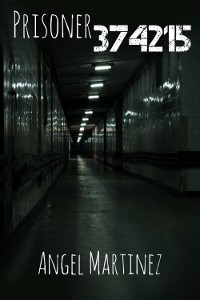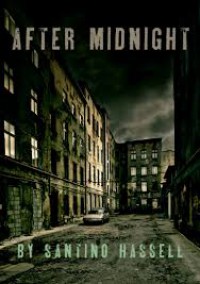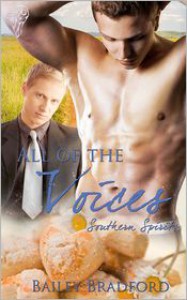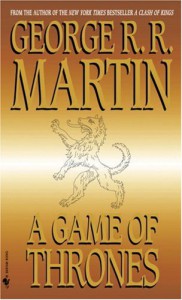Nowhere Ranch

I wasn't planning on reading anything for fun this month—I'm too busy reading for work—but this book jumped out at me and demanded to be read. "I'm full of dirty talk!" it said. "I'm kinky!" it said. So I just had to make some time for Nowhere Ranch.
Storywise, it reminded me of Bareback by Chris Owen and Keeping Promise Rock by Amy Lane. Strangely enough, it didn't remind me of Mary Calmes, but I've only read one book by her, so maybe there are some similar patterns there and I just can't see them.
For me, the difference between Nowhere Ranch and the abovementioned books is that the voice of the narrator is much more interesting and believable and the writing is a notch better.
As for the similarities, you have a ranch owner and a ranch hand. You have strained family relationships, and criminal records, and people running from things. You have minor dramas, and bad weather conditions, and various other things I won't mention here because I don't want to spoiler everything about the book.
There's also an abundance of sizzling and, yes, deliciously kinky sex scenes in roughly the first 50% of the book. The chemistry between the heroes is strong, the D/s dynamic well-done, and it worked great for me. Some of the BDSM elements I liked, while some others weren't exactly my cup of tea, but Travis and Roe seemed to be enjoying themselves just fine, so I went along and enjoyed that first half of the story plenty, too.
In the second half, though, the story adopts a much more dramatic and largely didactic tone and, by the end, the plot becomes unnecessarily corny. And maybe it was just me, but it was strange and a bit unexpected because that didn't seem like where the author intended on taking her characters and her story in the first half of the book.
What rubbed me the wrong way was that, suddenly, Roe needed Haley to act as sort of a mental crutch, to decide for him, defend him, speak for him and instead of him. For instance, it would have been a meaningful step in character development to have Roe finally finding the strength to speak up to his family. Haley doing it for him made him come across as weak when his actions were supposed to show otherwise.
Also, a major question was
(show spoiler)for their relationship and their story to be considered complete. That plot detail came out of nowhere (I mean, I knew what was going to happen the moment the words
(show spoiler)hit the page, but there was nothing at all in the plot development, before or after, to justify the twist) and it didn't add anything substantial to the story. If anything, for me, it detracted from it.
In a nutshell, in the first half of the book, you have two cowboys having fun and some hot and kinky sex, forging the kind of relationship (or quasi-relationship) they want, defining it according to their terms and needs, while in the second half of the book you have the character of Haley hijacking the story, turning the two kinky cowboys into a pair of marionettes, speaking for them, acting for them, ordering them around and, to cap it all off, forcing her baby on them because she decided so herself and it was final.
Still, I enjoyed this book enough to want to read more by Heidi Cullinan. I feel she has much more to tell me and I'm eager to try more of her work.
Darkfever (Fever, #1)
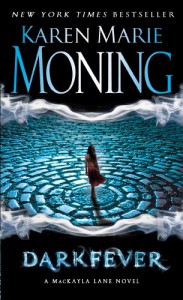
Some of the reasons why I finally got around to reading this book:
- It's Urban Fantasy;
- Jericho Barrons;
- A good portion of my GR friends has been raving about it for years;
- Jericho Barrons;
- Celtic lore & myths;
- Jericho Barrons;
- My friend Alky kept pimping it to me;
- Jericho Barrons.
Some of the reasons why I kept reading:
- I loved to hate Mac;
- Jericho Barrons;
- I liked the plot;
- Jericho Barrons;
- I liked the world-building;
- Jericho Barrons;
- Strangely enough, it was funny;
- Jericho Barrons;
Reason why I will continue to the next installment:
- Jericho Barrons.
Falling Away
 Well-done. This is one of those shorts that work fine as they are, but that could easily be expanded into a longer story to further explore the dynamic between the characters.
Well-done. This is one of those shorts that work fine as they are, but that could easily be expanded into a longer story to further explore the dynamic between the characters.
Openly Straight
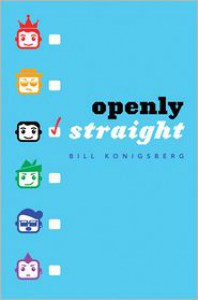
In Openly Straight, Mr Konigsberg explores, among other things, labeling and stereotyping, identity and self-perception, and the triptych 'tolerance-acceptance-celebration' when it comes to difference/diversity.
The book is well-written, in a fresh and funny and a largely non-sententious way.The thing is, though, I didn't like Rafe, the main character. I enjoyed certain parts of him, but I didn't really like him as person and my opinion of him didn't improve in the last quarter of the book, either. I understand that to a certain degree, we all learn to navigate life by trial and error, and that he came out of the whole experience a better person, but that didn't help him come across as less of an impostor. Also, for me, if you took Rafe and his (extended) family aside, almost everything else in the story felt stereotypical. The jocks posse (which, of course, included at least one deeply closeted homosexual and at least one homophobic member,) the geeky roommate, the one openly gay student, the progressive English professor (who reminded me of Robin Williams in Dead Poets Society,) the unsophisticated sports coach, the love interest who couldn't take the step forward and come out as gay, (or bi,) because of all the things that held him back (mostly his family. Naturally.)
The book is about Rafe, so I understand why it had to end the way it did. Though I would have enjoyed it more had it been a dual POV story. That way, I could have spent some time in Ben's head, too, seen how he struggled with his own issues of identity and self-perception.
The Vast Fields of Ordinary
 2.5 stars rounded up.So. The Vast Fields of Ordinary. Indeed. Because there wasn't anything really extraordinary about this book.Someone should probably rewrite the blurb. I kept expecting "tragedy to shutter the dreamy curtain of summer," but unless you count the last chapter—that textbook example of telling instead of showing—tragedy was resoundingly absent from this book.I didn't like Dade. He was a boring, unexceptional, detached, and at times even mean rich kid with rich kids' problems. (Okay, Pablo wasn't very nice to him in the first 1/3 of the book, I'll give him that, but look what happened to bad Pablo who refused to come out of the closet for Dade's sake. Hm?) He'd just finished school and he was about to go to college and, practically, all he did was doze the summer away sprawled out on a chaise by the pool of his house pretending he cared about his parents' impending divorce. In those pool scenes he kind of reminded me of Dustin Hoffman in The Graduate.Also, Dade should be dubbed the Gladstone Gander of Midwestern suburbia. The moment he needed a BFF, Lucy (who also happened to be a lesbian, how convenient) magically moved to his neighbourhood. The moment he needed a real boyfriend, Alex Kincaid appeared as if out of thin air. Bonus features: he was cool, he was sexy, and he was gay (he was also a drug dealer and a loser, but who cared about that.) The moment he needed time and space to explore his newly-minted relationship with Alex, his parents decided to go to Europe for two weeks to try and save their marriage. I know, right? Gladstone Dade.Then you had that little missing girl. Who I suppose symbolised Dade's life? Yep. I won't go there. It wasn't very well done.Still, I won't say this book was an entire waste of time. Although the story had a cliché air about it, there were parts where the writing was decent and had me wondering about the author's other work (he hasn't written anything else, unfortunately.)I'd say, if you approach this without any great expectations, you might even like it.
2.5 stars rounded up.So. The Vast Fields of Ordinary. Indeed. Because there wasn't anything really extraordinary about this book.Someone should probably rewrite the blurb. I kept expecting "tragedy to shutter the dreamy curtain of summer," but unless you count the last chapter—that textbook example of telling instead of showing—tragedy was resoundingly absent from this book.I didn't like Dade. He was a boring, unexceptional, detached, and at times even mean rich kid with rich kids' problems. (Okay, Pablo wasn't very nice to him in the first 1/3 of the book, I'll give him that, but look what happened to bad Pablo who refused to come out of the closet for Dade's sake. Hm?) He'd just finished school and he was about to go to college and, practically, all he did was doze the summer away sprawled out on a chaise by the pool of his house pretending he cared about his parents' impending divorce. In those pool scenes he kind of reminded me of Dustin Hoffman in The Graduate.Also, Dade should be dubbed the Gladstone Gander of Midwestern suburbia. The moment he needed a BFF, Lucy (who also happened to be a lesbian, how convenient) magically moved to his neighbourhood. The moment he needed a real boyfriend, Alex Kincaid appeared as if out of thin air. Bonus features: he was cool, he was sexy, and he was gay (he was also a drug dealer and a loser, but who cared about that.) The moment he needed time and space to explore his newly-minted relationship with Alex, his parents decided to go to Europe for two weeks to try and save their marriage. I know, right? Gladstone Dade.Then you had that little missing girl. Who I suppose symbolised Dade's life? Yep. I won't go there. It wasn't very well done.Still, I won't say this book was an entire waste of time. Although the story had a cliché air about it, there were parts where the writing was decent and had me wondering about the author's other work (he hasn't written anything else, unfortunately.)I'd say, if you approach this without any great expectations, you might even like it.
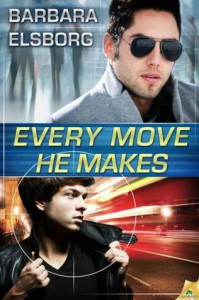 2.5 stars rounded up to 3.I agree with Kate's review about the toppy guys who aren't toppy at all. And with Susan's review about the sloggy writing, the repetitiveness and the MCs becoming annoying and whiney. Eh. It was OK. I wasn't bored. But I wasn't excited, either. It was like one of those Sandra Bullock or Jennifer Lopez films you watch on the tele just because they're on, but you remember bugger all when they're over.
2.5 stars rounded up to 3.I agree with Kate's review about the toppy guys who aren't toppy at all. And with Susan's review about the sloggy writing, the repetitiveness and the MCs becoming annoying and whiney. Eh. It was OK. I wasn't bored. But I wasn't excited, either. It was like one of those Sandra Bullock or Jennifer Lopez films you watch on the tele just because they're on, but you remember bugger all when they're over.
Beyond Eden
 1.5 stars.Nothing in this book worked for me. Not the plot, not the characters (or their nicknames,) not the lukewarm chemistry between them, and not the quasi D/s relationship they shared. The sex was ok, but it wasn't anything earth-shattering, either. There were also a few fragments, glimpses of a good menage story there, but nothing really memorable.I had to make myself keep reading and that should speak for itself.
1.5 stars.Nothing in this book worked for me. Not the plot, not the characters (or their nicknames,) not the lukewarm chemistry between them, and not the quasi D/s relationship they shared. The sex was ok, but it wasn't anything earth-shattering, either. There were also a few fragments, glimpses of a good menage story there, but nothing really memorable.I had to make myself keep reading and that should speak for itself.
Slam!

I usually enjoy J.L. Merrow's books. I find her style refreshing, and her Briticisms are right up my alley. But, after reading Slam!, I feel she's reached a plateau and things are about to take a turn toward failure. Merrow's writing is rapidly becoming stale and at the same time too apparent, making her stories dull and more or less predictable.
So. J.L. Merrow's formula. Let's see what we have here, in no particular order:
- A blue-collar (first person) narrator.
- A more well-off and/or more highly educated love interest (sometimes it's the other way around, with the narrator being the well-off one, but that's the dynamic between the MCs.)
- A single working-class mother who was abandoned by the narrator's father and raised her only child alone.
- The narrator has one or more pets that are treated almost like separate characters in the story.
- The narrator or his love interest does karate. Sometimes, they both do karate.
- There are references to car brands (usually it's a VW model, but here it was a Ka) and how people drive them. Several scenes take place in cars and there is at least one reference to the hand brake.
- The characters drive around and/or sightsee and/or eat out in local old pubs. Said pubs are described in detail. There is also at least one reference to some British celebrity living in the area or frequenting said pubs.
- There is one/one-and-a-half mediocre sex scene(s) and it usually appears near the end of the book (at around 80%).
- Despite the sex scene appearing so late in the story, there is no sexual tension between the main characters and sometimes it's a bit unclear what they find in each other.
- There's some kind of minor or major misunderstanding between the MCs. Sometimes it keeps them apart for a while.
- Expect to stumble over certain (BrEn) expressions, like "I don't give a monkey's," "Keep your hair on", et al.
- Expect to stumble over certain Merrow-isms, like "my flabber had been gasted" or "my gob had been well and truly smacked".
Apart from the above, in Slam!, Jude (the hero) also kept saying "ew" and pouting, kept finding things "lush," and kept going all warm and gooey or tingly or whipped-creamy inside, to name a few of his habits.
So, I got it. Jude was a young, loud, flamboyant kind of person. And it would have been okay if his love interest, David, wasn't the exact opposite. He was older, restrained, unflashy. And exactly because of that, and because of the fatherly way he reacted to Jude's dramatic mannerisms, he came across as much older than he really was, which was a bit disturbing, even though it was alluded in the book that Jude always went for much older men. The plot didn't help much in this respect, either, because David kept having to protect Jude from dangerous situations and take him to the A&E. Much like a father would do with his son.
I won't comment on Jude's mother, her age and the role it played in the story. I'm willing to let it pass, since she was an undereducated woman with self-esteem issues trying to rebuild her life with a new man. I can't say the same about Keisha, Jude's best friend, though. Too many times her side story felt redundant. Unless the author plans to do an f/f sequel featuring her, I fail to see why she needed to take up so much space in the book.
The salacious limericks didn't bother me, but that side of the story (the slams, the open mics, etc.) felt a bit desultory; it didn't mesh well with the rest of the plot.
Ms Merrow isn't very well-known for her fascinating and intriguing plots (it's usually her characters that captivate the reader) but here she gave up altogether. The story could be summed up as follows: Jude and David meet, they go out on a few dates, they have sex, they spend some time apart and then they get back together. The End.
I'm giving this 2.5 stars (rounded up to three) because I two-starred Wight Mischief and I may have not enjoyed Slam much, but it wasn't nearly as frustrating a reading experience as Wight Mischief.





